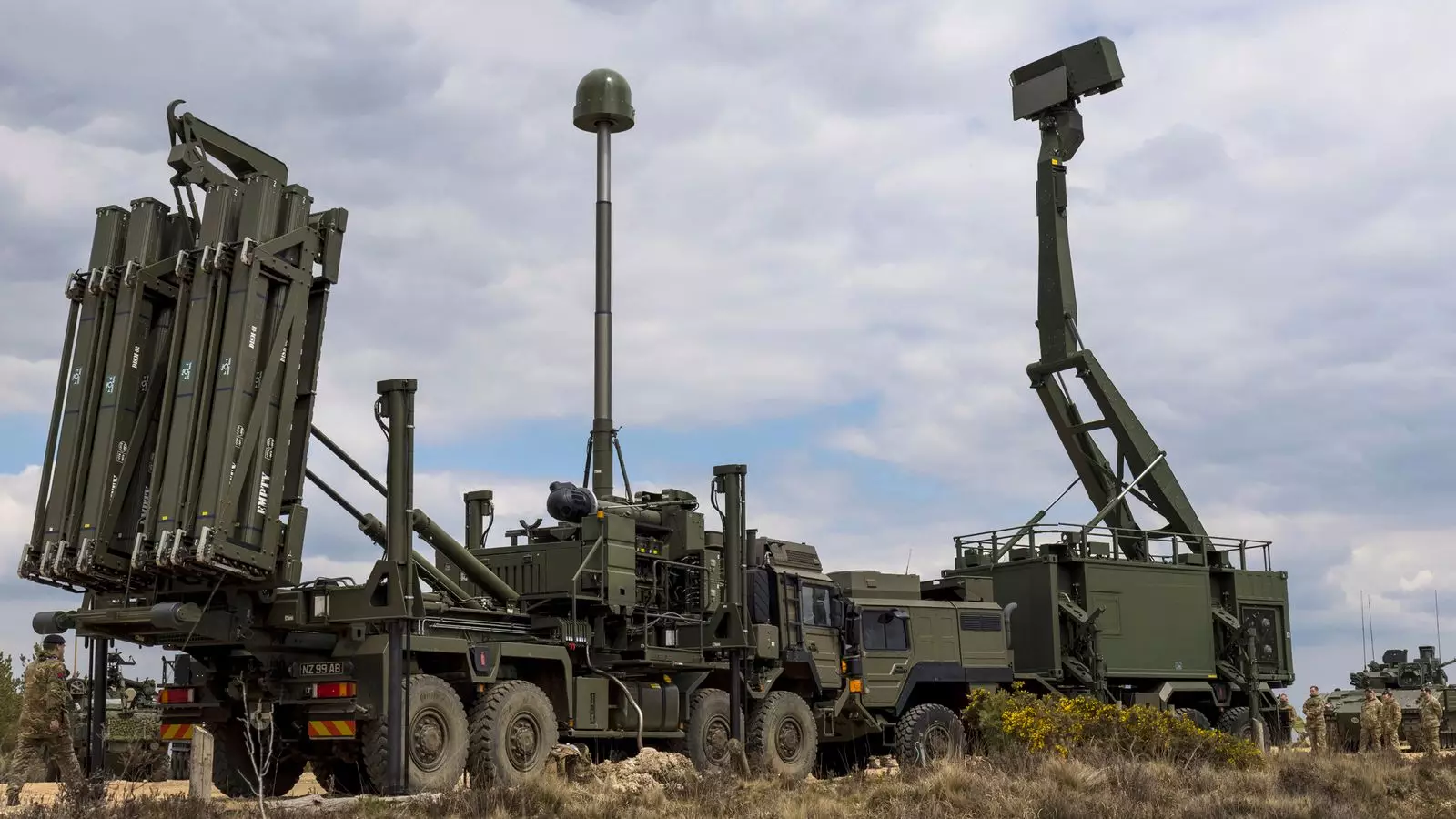The recent announcement by the Ministry of Defence to procure £118 million worth of air defense missile systems may seem like a strategic move to bolster the UK’s defenses. However, this buy-and-hope approach masks a fundamental misunderstanding of today’s evolving threats. Relying on outdated assumptions rooted in Cold War-era thinking is a reckless gamble that leaves the nation dangerously exposed. The British Army’s transition from the venerable Rapier system to Sky Sabre marks a technological upgrade, yet it is insufficient in addressing the scale and complexity of modern aerial threats. The ‘improved’ missile system is more capable, but the core issue is that it continues to rely on point-defense tactics rather than holistic, layered prevention strategies. The UK’s defense architecture—once robust, now piecemeal—has succumbed to a complacency born of relative peace and geopolitical distractions.
Superficial Upgrades in a Changing World
What does this latest missile purchase truly signify? A superficial upgrade in a landscape where threats are exponentially increasing in both sophistication and quantity. The Land Ceptor missile, integral to Sky Sabre, boasts impressive capabilities—intercepting threats within 15 miles and sporting a formidable warhead. Yet, these capabilities are reactive, coming into play only after an enemy projectile is launched. In an era dominated by hypersonic missiles, swarms of drones, and ballistic threats, the UK’s reliance on a missile system designed for a different era borders on strategic naivety. The global stage is shifting, with powers like Russia and China investing heavily in missile technology that could render existing defenses obsolete. The UK’s current focus—a reactive, point-defense system—is not a shield but a fragile layer in an increasingly unstable security environment.
Historical Myopia and Strategic Shortcomings
A deep flaw in UK defense policy lies in its historical myopia. Post-Cold War, the UK embraced expeditionary warfare against weaker adversaries, with reduced emphasis on missile defense. This complacency is now starkly evident. The BBC’s coverage of the Ukrainian crisis and Middle Eastern conflicts reveals that missile proliferation is no longer a distant problem; it is a current, escalating threat. The UK’s reliance on NATO and allied defenses to fill gaps is akin to building a castle with a sieve. The absence of a credible ballistic missile shield—similar to Cold War era Bloodhound systems—demonstrates institutional shortsightedness. Relying on allies’ capabilities can buy time, but it does not substitute for a robust, national-level missile defense strategy that can be deployed swiftly in a crisis.
What the Future Holds: A Fragile Deterrent
The danger is not merely theoretical—it is tangible and immediate. Iran, Russia, and China are all developing hypersonic weapons that challenge existing defense systems. The UK’s current layered defenses, including radar at RAF Fylingdales, are antiquated in the face of these emerging technologies. An attack—perhaps a salvo of hypersonic missiles—could cripple national infrastructure before reaction mechanisms even activate. Moreover, the political and military will to adapt at the necessary pace remains deeply uncertain. The acquisition of additional Land Ceptor missiles is a temporary patch in a much larger, more problematic fabric of national security. If the UK does not invest in a comprehensive, multi-tiered missile defense system—covering everything from low-altitude drones to high-velocity hypersonic threats—its vulnerability will only grow worse.
The False Promise of Small-Scale Military Reforms
Finally, this procurement highlights a broader issue: a persistent pattern of militaristic superficiality. Incremental upgrades and limited budgets impede meaningful transformation. Defense authorities are often content with a token gesture—like buying a few missile systems—rather than challenging the paradigms of strategic deterrence and resilience. The true question is whether the UK is willing to confront the uncomfortable truth: that modern defense requires radical overhaul, not symptomatic adjustments. Until there is recognition that geopolitical entropy demands a dedicated, well-funded missile shield, the nation will continue to drift perilously close to strategic obsolescence. The current defense modernization effort, while a step forward, is ultimately an insufficient response to an increasingly hostile world.


Leave a Reply